
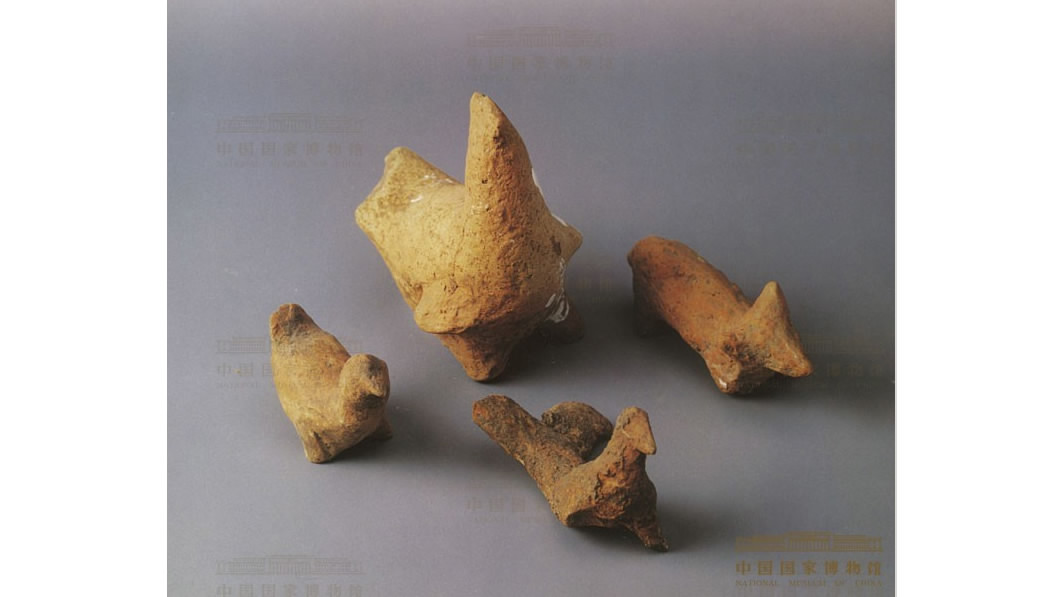
At the beginning of Chinese Year of the Rooster let's visit some rooster-themed historical relics. A set of argil poultry presented by National Museum of China was originally found in central China’s Hubei Province. Radiocarbon Dating suggests this set was created in late Neolithic Age. /National Museum of China Photo
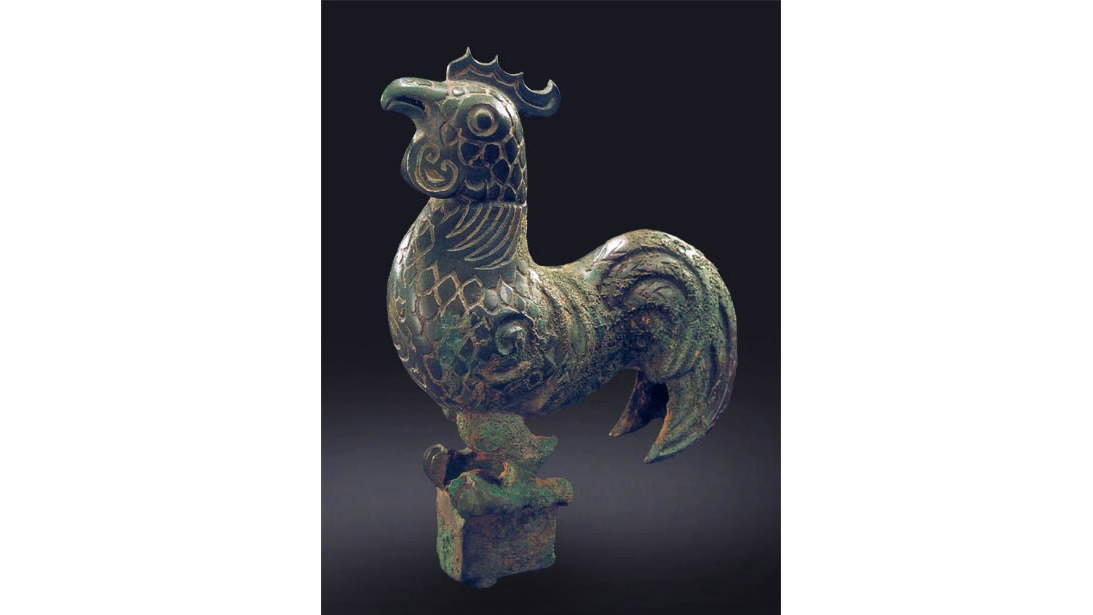
This complete, delicate bronze rooster statue presented by Sanxingdui Museum was originally found in southwest China’s Sichuan Province. It is over 3,000 years old. /Sanxigndui Museum Photo
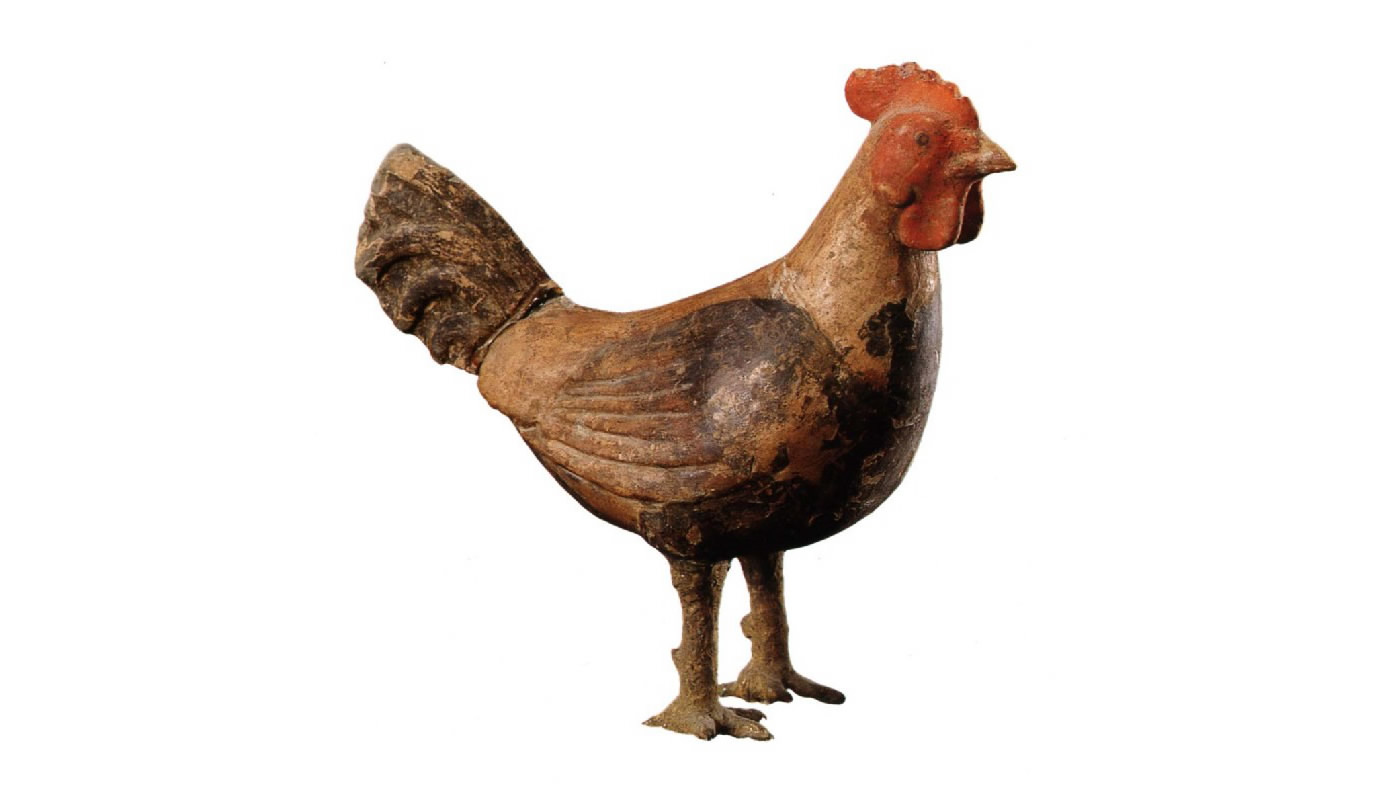
Another rooster was found among a lot of hand painted pottery figurines in northwest China’s Shaanxi Province. It was a funeral object buried in Emperor Jing of Han’s tomb. /Xinhua Photo
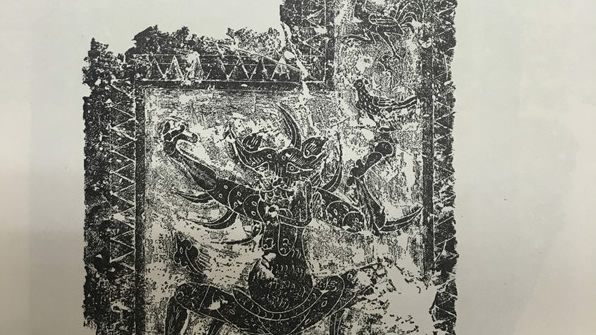
A rare depiction of roosters from tombs of the Han dynasty. An engraving taken from a Han tomb shows four chicken and other poultry rise with a supernatural being. /Xinhua Photo
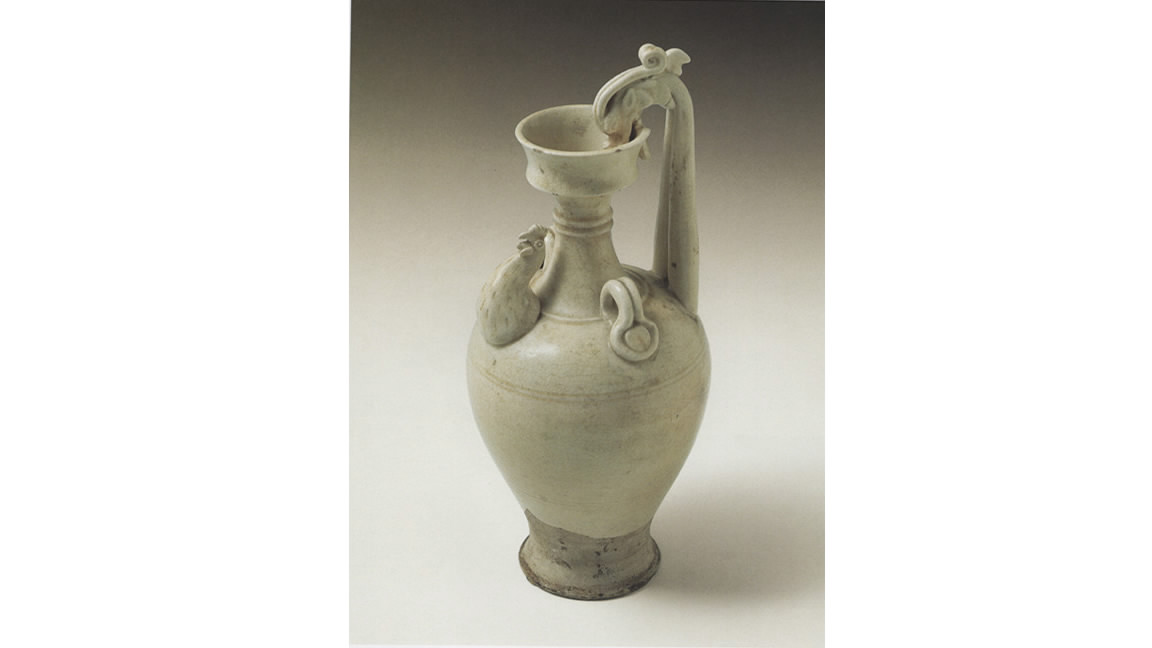
the ancient Chinese also adapted rooster shapes into everyday objects. A rooster-form slim-shaped pot was found in Shaanxi Province, which dates back to Sui dynasty (608 B.C.). /Xinhua Photo
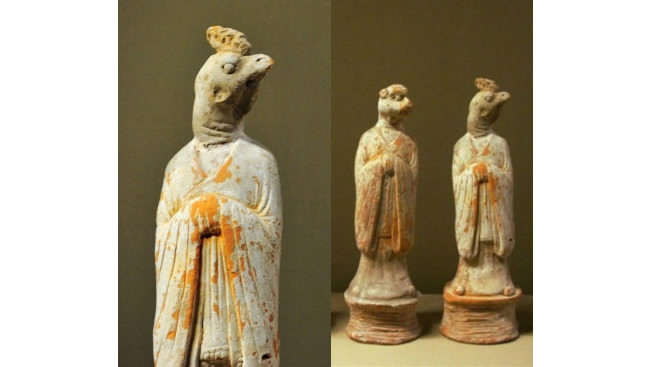
This burial object suggests that people from Tang dynasty also tried to morph the rooster into a human being for some kind of blessing. In Mandarin the word "rooster" sounds the same of "lucky", hence Chinese culture often loves to imbed the rooster image into all kinds of objects. /Xinhua Photo

Copyright © 2018 CGTN. Beijing ICP prepared NO.16065310-3
Copyright © 2018 CGTN. Beijing ICP prepared NO.16065310-3